CIRCLE VISIONS is a community-building initiative that offers training in storytelling and new media technologies to empower Indigenous filmmakers, activists and artists. Housed in the Communication Studies Department at Concordia University, the project stems from an annual series of cross-platform documentary workshops for emergent Indigenous filmmakers initiated in 2016 in close collaboration with Wapikoni Mobile and with the support of the Concordia Documentary Centre. In 2020, we plan to expand the Summer Institute’s emerging role as a vehicle for Indigenization and critical Virtual Reality (VR) practice at Concordia.
Founded and organized by Liz Miller (Communication, Concordia) and Kester Dyer (Film Studies, Carleton University), Circle Visions quickly evolved to comprise media-making workshops and training in different formats and addressing a range of themes and problematics. Through our annual Summer Institute we offer training in such techniques as documentary, sound design, rotoscoping, interviewing, podcasting, projection mapping, drawing on film, under-camera animation, and 360-degree filmmaking. Indigenous participants in Circle Visions workshops have not only acquired new technical skills, but also tackled themes of concern to them through short artworks produced as outcomes to their experimentations, several of which have been featured in film festivals, including Présence autochtone, ImagineNATIVE and Asinabka.
Over the last five years, Wapikoni and other Indigenous filmmakers hailing from various nations and communities have participated and worked in collaboration. In addition, Indigenous participant-mentors Cherry Smiley (Nlaka’pamux/Diné) and Daphne Boyer (Métis) have worked alongside participants and workshop instructors during our Summer Institutes. Several Indigenous and non-Indigenous guest professors have also contributed to the annual Summer Institute from such academic departments as Communication Studies, Journalism, Cinema, Art Education, Design and Computation Arts, and First Peoples Studies. In addition, we have been fortunate to receive special guests such as filmmaker Sonia Bonspille Boileau (Kanien’kehake).
In 2020, we plan to expand the Summer Institute’s emerging role as a vehicle for Indigenization and critical Virtual Reality (VR) practice at Concordia. We will welcome six more Indigenous filmmakers, including at least one experienced mentor-artist-in-residence, to participate in one week of workshops in May 2020. This initiative fosters a unique and mutually benefitting exchange between Concordia students and Indigenous filmmakers interested in the far-reaching potentialities of VR and immersive media, and will act as a springboard towards constructing a wider and more complex partnership network involving multiple academic and community-based institutions in an effort to respond concretely to ongoing imperatives to decolonize and Indigenize the academy.
Circle Visions is currently supported by a Partnership Engage Grant from the Social Sciences and Humanities Research Council of Canada (SSHRC).
Founded and organized by Liz Miller (Communication, Concordia) and Kester Dyer (Film Studies, Carleton University), Circle Visions quickly evolved to comprise media-making workshops and training in different formats and addressing a range of themes and problematics. Through our annual Summer Institute we offer training in such techniques as documentary, sound design, rotoscoping, interviewing, podcasting, projection mapping, drawing on film, under-camera animation, and 360-degree filmmaking. Indigenous participants in Circle Visions workshops have not only acquired new technical skills, but also tackled themes of concern to them through short artworks produced as outcomes to their experimentations, several of which have been featured in film festivals, including Présence autochtone, ImagineNATIVE and Asinabka.
Over the last five years, Wapikoni and other Indigenous filmmakers hailing from various nations and communities have participated and worked in collaboration. In addition, Indigenous participant-mentors Cherry Smiley (Nlaka’pamux/Diné) and Daphne Boyer (Métis) have worked alongside participants and workshop instructors during our Summer Institutes. Several Indigenous and non-Indigenous guest professors have also contributed to the annual Summer Institute from such academic departments as Communication Studies, Journalism, Cinema, Art Education, Design and Computation Arts, and First Peoples Studies. In addition, we have been fortunate to receive special guests such as filmmaker Sonia Bonspille Boileau (Kanien’kehake).
In 2020, we plan to expand the Summer Institute’s emerging role as a vehicle for Indigenization and critical Virtual Reality (VR) practice at Concordia. We will welcome six more Indigenous filmmakers, including at least one experienced mentor-artist-in-residence, to participate in one week of workshops in May 2020. This initiative fosters a unique and mutually benefitting exchange between Concordia students and Indigenous filmmakers interested in the far-reaching potentialities of VR and immersive media, and will act as a springboard towards constructing a wider and more complex partnership network involving multiple academic and community-based institutions in an effort to respond concretely to ongoing imperatives to decolonize and Indigenize the academy.
Circle Visions is currently supported by a Partnership Engage Grant from the Social Sciences and Humanities Research Council of Canada (SSHRC).
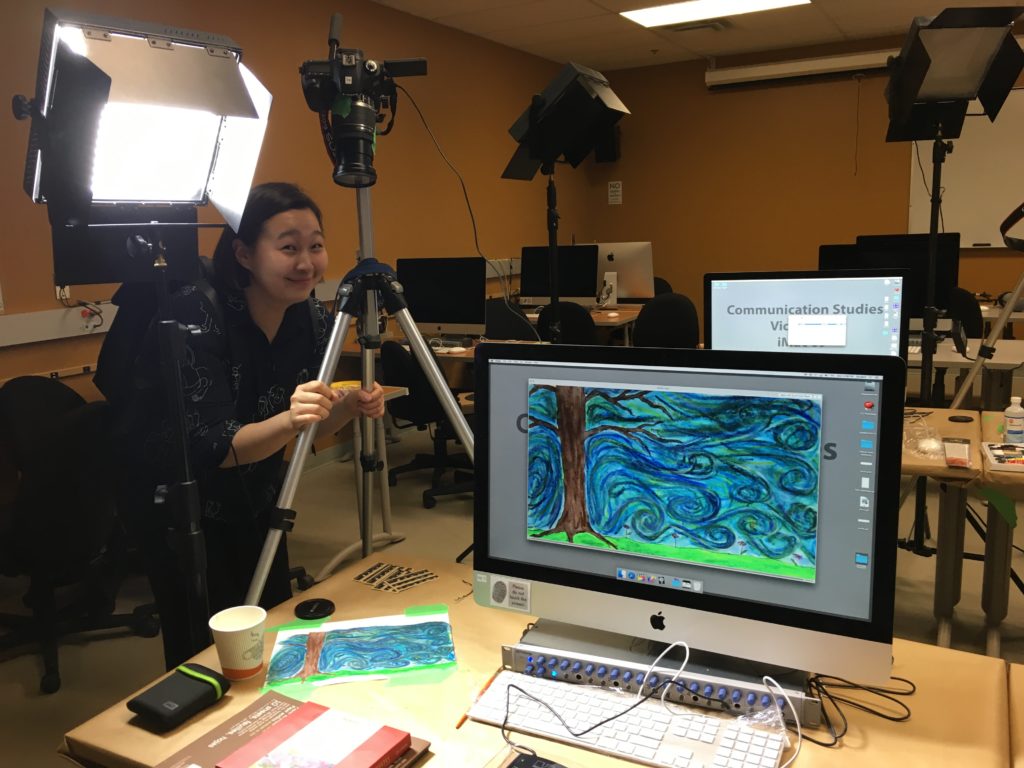

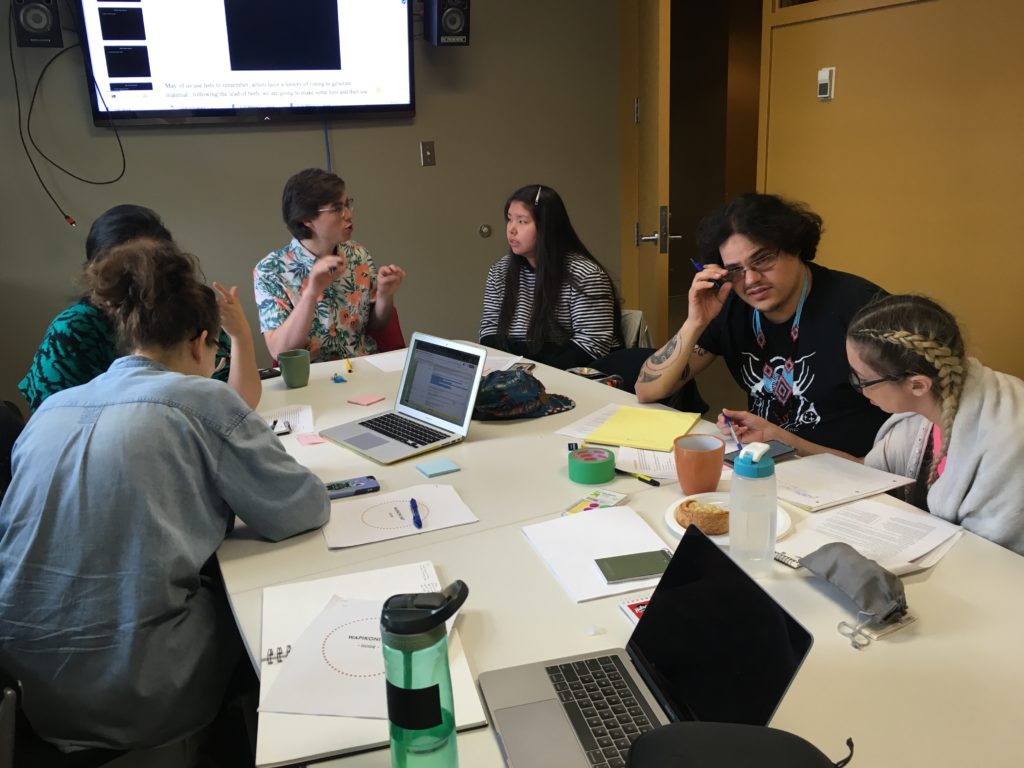

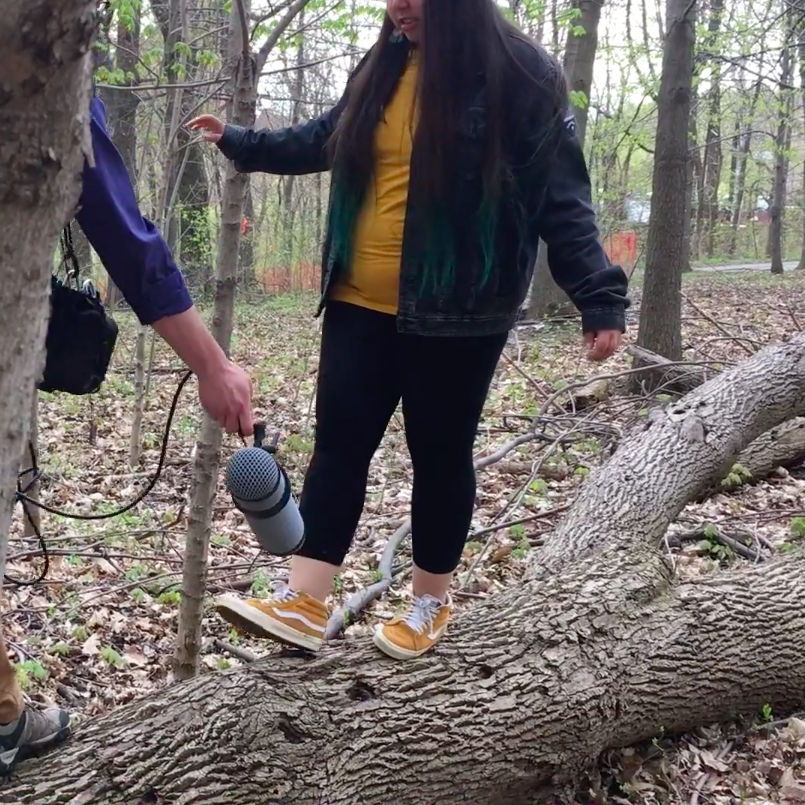

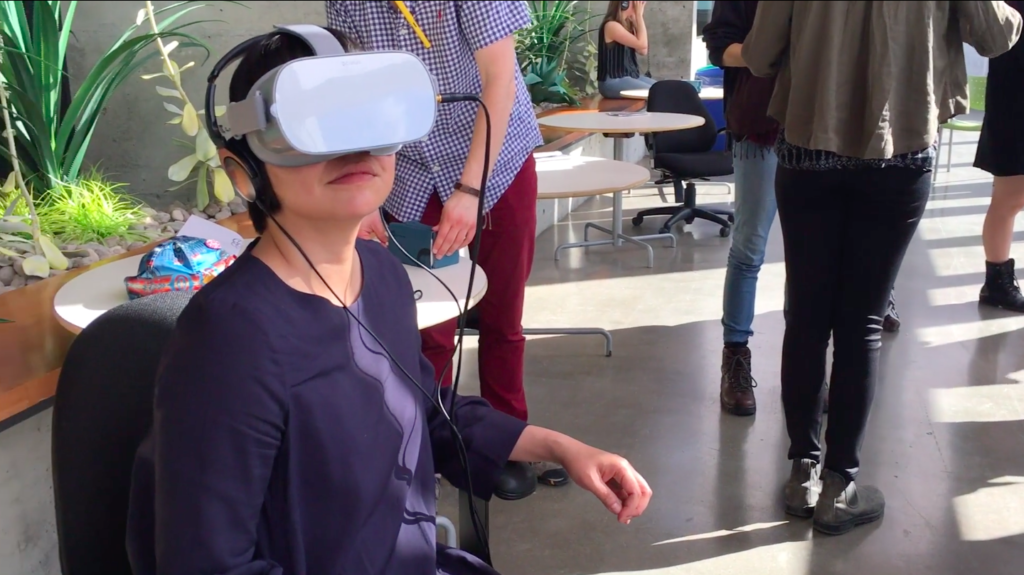


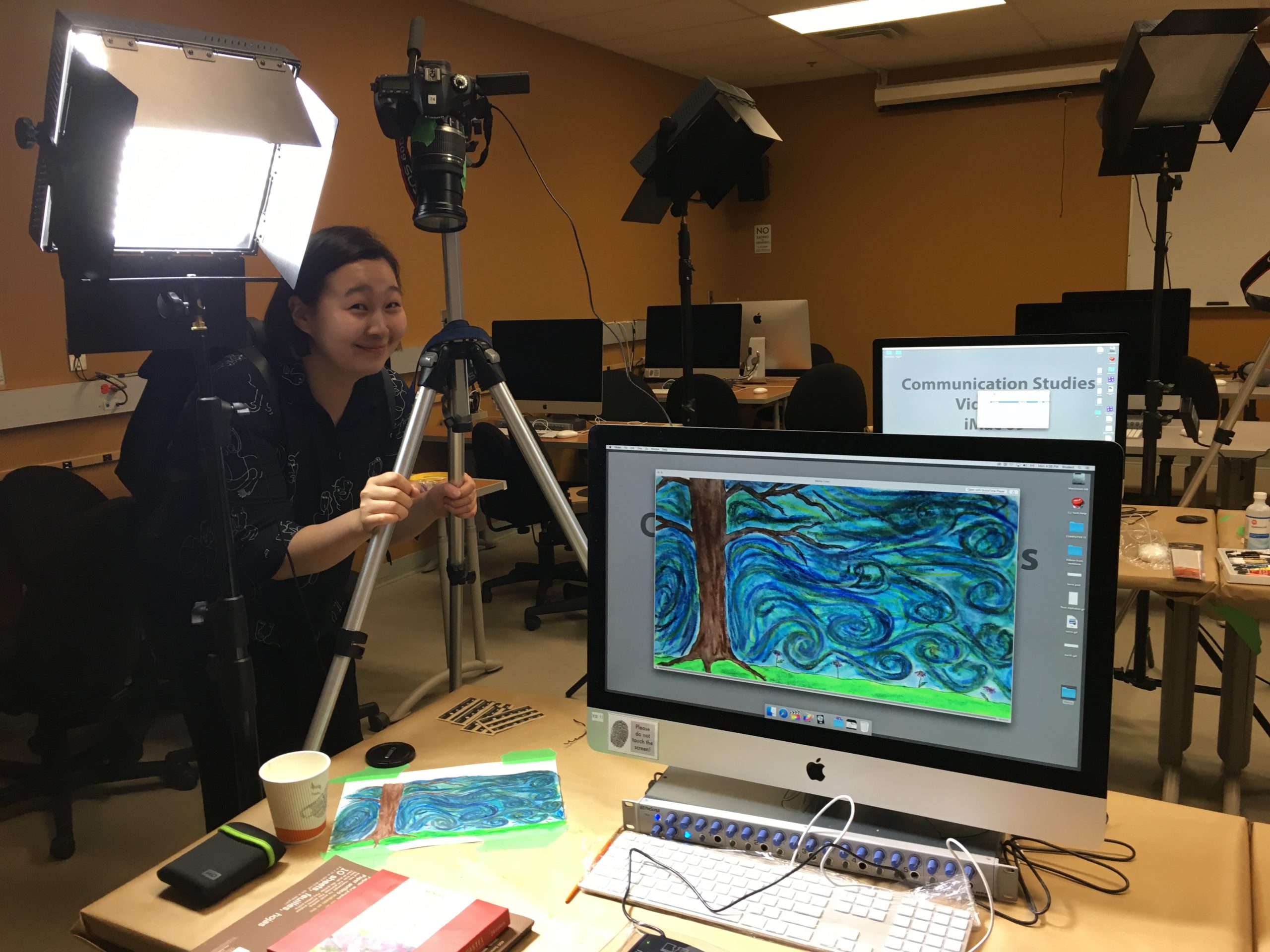

For all inquiries, please contact Liz Miller by email.
Professor Liz Miller is a co-founder of Circle Visions and a documentary maker interested in new approaches to community collaborations and documentary as a way to connect personal stories to larger social concerns. Liz teaches courses in Communication Studies in 360 film, moving images, food and film, research-creation and more. She has organized and led media institutes and workshops with a
range of groups (youth, senior citizens, human rights advocates, refugee organizations, teachers, water experts) in video advocacy, digital storytelling and media production. She is the co-author of Going Public: The Art of Participatory Practice.
Kester Dyer is a co-founder of Circle Visions, a film and media scholar, and assistant professor at the School for
Studies in Art and Culture at Carleton University. Kester received his PhD in Film and Moving Image Studies from Mel Hoppenheim School of Cinema. His dissertation examines expressions of intercultural tension through manifestations of the supernatural in the cinema of Québec. He was the 2013-14 recipient of the Gerald Pratley Award of the Film Studies Association of Canada (FSAC) for a project on Wapikoni Mobile, which looks at how this participatory filmmaking initiative promotes radical re-conceptualizations of nationhood and redefines intercultural relationships through practical and thematic approaches to transportation. In addition to Québec film, media and culture, Kester’s areas of interest include nationalism, postcolonial theory, Irish film, genre theory and Indigenous film and media. In addition to film and media in Québec and Canada, Kester’s areas of interest include nationalism, postcolonial theory, Irish cinema, genre theory and global Indigenous film and media.
JA Bautista-Beauchesne is a filmmaker and educator with experience in international distribution.
A.J. Cordeiro is a currently a media instructor in the Department of Journalism.
Jaelle Dutremble-Rivet is a new media artist with a keen eye for storytelling and brand awareness with an MA in Communication Studies.
Zaccary Dyck is an educator, creative technician and media expert with experience in VR, moving images and sound. He has worked on independent films and with corporate clients. He currently works at District Three while pursuing his undergraduate degree in Communication Studies.
Alisi Telengut is an award-winning animator and filmmaker based in Montreal.
Émilie Trudeau is a co-designer of the Circle Visions workshops. She has experience in VR, Design and Moving Images and has worked as an educator, group facilitator and creative artist in a variety of environments. She is an MA student in Communication Studies doing research-creation in Pedagogies of Decolonization.
Sonia Boileau (Kanienʼkéha) is the director of Rustic Oracle (2019) and a Canadian First Nations filmmaker belonging to the is Kanienʼkehá꞉ka Nation of the Haudenosaunee Confederacy.
Daphne Boyer (Métis) is known for combining plant material, women’s traditional handwork and a range of digital technologies.
Elizabeth Fast (Métis) is an Assistant Professor in the Department of Applied Human Sciences at Concordia. Elizabeth is currently the principal investigator on a research grant that seeks to understand how “legacy education” can be used to strengthen cultural pride among urban Indigenous youth and is leading an action research project on improving child welfare services for Indigenous families in Montreal in partnership with the Native Women’s Shelter of Montreal.
Karl Hele (Anishinaabeg) is a historian by trade, with expertise in Indigenous history and politics who teaches at Mount Allison University in the department of Canadian Studies.
Jason Edward Lewis (Cherokee/Samoan/Hawaiian) is a full professor at Concordia, a digital media artist, poet and software designer.
Matt Soar is a professor in Communication Studies and an intermedia artist, filmmaker and writer, with a scholarly background in design, media studies, and cultural studies. His research-creation activities usually lie at the juncture of residual and emergent media forms.
Cherry Smiley (Nlaka’pamux and Dine’) is an artist, public speaker freelance consultant and PhD candidate in Communication Studies.
MJ Thompson is a writer and professor of interdisciplinary studies and practise in the department of Art Education at Concordia. Her writing and research interests include dance and performance studies, feminist performance, art and the environment, theories of everyday life, writing and writing pedagogy.
Ezra Winton has a PhD in Communication Studies from Carleton University. His research and teaching are focused on documentary, Indigenous cinema and media, alternative media, social movements and media, film festivals, curatorial processes and practices and ethics. Ezra is the co-founder (with Svetla Turnin) and Director of Programming of Cinema Politica, a non-profit media arts organization that screens independent documentary at nearly 100 locations—mostly on campuses—in Canada and throughout the world.